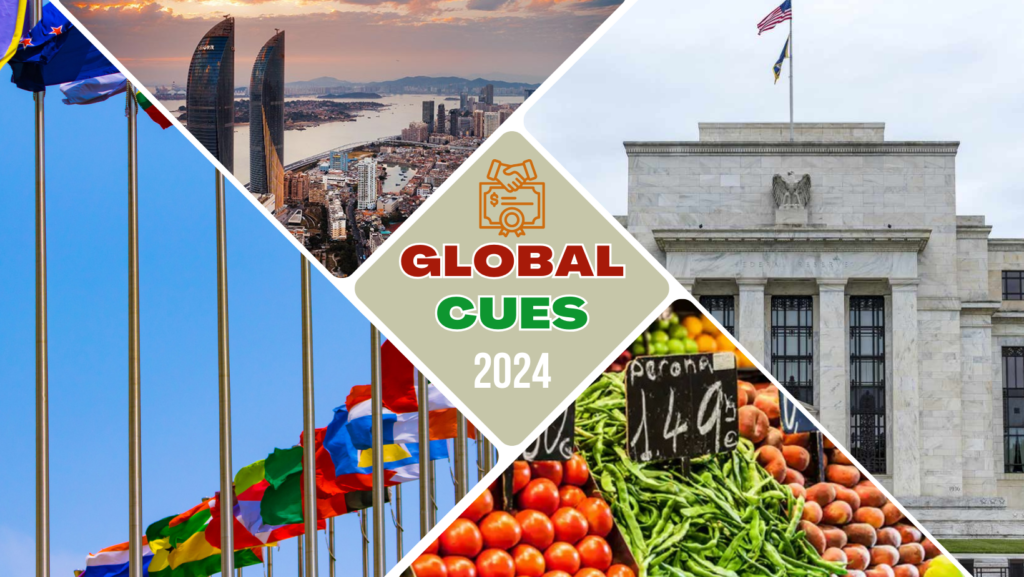February 2024

The World bank has forecast global growth to slump further to 2.4% in 2024 from 2.6% in 2023 and rise slightly to 2.7% in 2025. What does it mean for our investments and why is the global picture looking so bleak? What has made the World Bank so pessimistic about global growth? Well, there are enough cues if you care to notice them.
Fed’s Rate Stance – There’s no going back to the sub 2% inflation in the US and this has to be accepted with a pinch of salt. Best case scenario could be a 2.5 -3% inflation in the coming years. Given other factors like high deficit and this being an election year, the economy needs some boost. However, inflation continues to stay elevated and rate cuts in near future seem a remote possibility now.
Food Inflation – It continues to rage across the world for several reasons. Extreme weather events for economies in the South Asia region, including India, will have an adverse impact on food production.
Red Sea Threat – If it lasts the full year, it can have a significant impact on oil, supply chain disruptions and freight costs which will all show up in the inflation numbers esp for Europe and US. This factor may add almost 7% to inflation in these economies which are already grappling with decade high inflation.
Geo-Politics – While geo-political tension has rocked every economy in the past two years, affecting short-term growth, the medium-term outlook is looking no better for most developing economies with these tensions still persistent.
Major Elections – More than half of the world population will witness elections this year and the outcome of these elections could have a rub-off effect on private and foreign investments. For instance, if Trump is elected, he will bring in tax cuts and spending plans which will impact long-term growth of the US economy which is already in a difficult situation in terms of debt and balance of payments. Similarly, outcome of the Russian mandate which is going to elections in March can affect energy prices.
China Story – China’s investment led growth has hit a ceiling. Chinese folks are traditionally low spenders and with a collapsing property market, they are even more wary about spending. Unless China stimulates domestic consumption, it is unlike to sustain a growth rate of 4-5% over the next decade and whatever China does to sort out its economic imbalance, will have a cascading effect on the global economy. For instance, if manufacturers raise wages to stimulate domestic consumption, it’ll reduce China’s competitive advantage as the world’s factory.
The Last Word
Given the current cues emerging from various parts of the world, we need to tread with caution. Inflation affects all asset classes and it will have a bearing on our portfolios. Election results could swing the global indices either way. These are extremely volatile times and the choice of investments has to be made keeping this in mind.
